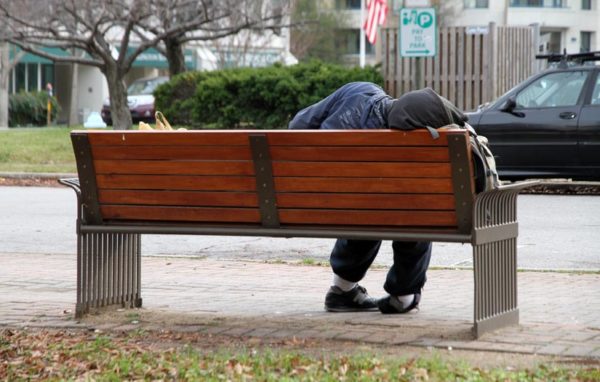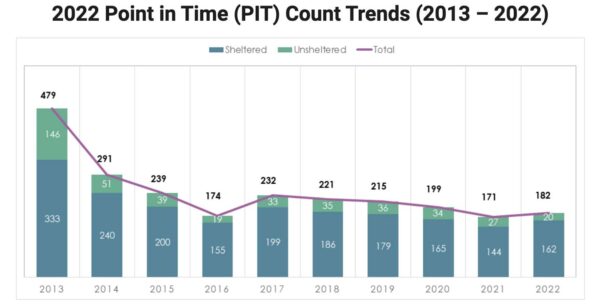
Arlington County has received a $1.2 million federal grant to move people experiencing homelessness into permanent or temporary apartment housing.
Approximately 55% of the grant will be for housing — mostly one- and two-bedroom affordable rental units — and the remainder “is for supportive services and staffing,” says Dept. of Human Services spokesman Kurt Larrick.
This project provides permanent housing in existing, but unoccupied, committed affordable units in Arlington to people either living outside or in one of the county’s four emergency shelters, operated by Bridges to Independence, Doorways, New Hope and PathForward.
In federal government speak, this is known as “rapid rehousing,” says Larrick.
It is part of Arlington County’s “housing first” approach — one in which people are housed without stipulations, says Adele McClure, a candidate for the second district of the House of Delegates, who has worked for many years in Arlington tackling homelessness after experiencing it herself in Fairfax County.
“It’s breaking down the barrier to housing,” she said. “I am a product of those stipulations growing up. When I was in transitional housing, we didn’t have ‘housing first’ model, it was really, really tough for our family. I am thankful Arlington and all of Virginia engages in that.”
The funds will also pay for master-lease agreements with nonprofits to move people into apartments temporarily before moving to permanent housing, Larrick said.
This grant has a three-year term. It is a new funding source and a new U.S. Department of Housing and Urban Development (HUD) project type for Arlington.
“But the work is not new to Arlington and will be a mix of non-congregate shelter and Rapid Rehousing services for people experiencing homelessness,” Larrick said. “Arlington has a long history of winning competitive HUD funding opportunities across a range of programming areas though.”
McClure says Arlington is well-positioned to address homelessness because of its “continuum of care” model that brings together nonprofits, affordable housing providers and public and private service providers to oversee everything from subsidy programs to street outreach.
The funding will help replace early Covid relief federal funding through the CARES Act, which is coming to an end, she noted.
The grant comes as the county is working on its next strategic plan to help households at risk of homelessness keep their housing and help homeless families quickly regain stable housing.
Arlington County adopted a 10-year plan in 2006. Data over the last decade show that during the out-years of the plan, the population of people living in shelters and outdoors dropped sharply. That rate of decline has since slowed and possibly plateaued.

“We started off really strong and we had that sharp decline, but once you get down to the lower numbers we have, we’re going to get down to the folks who are hardest to serve: those are the folks who don’t necessarily stay sheltered,” McClure said. “I know, here in Arlington, we are concerned about losing that momentum and progress.”
A three-year plan was adopted in 2018. The plan was extended due to Covid, but now, the county is reprising its planning. This round is focused on addressing inequities for people of color, immigrants and seniors.
“Arlington struggles with the availability of resources, funding and stock of affordable housing,” McClure said. “There are large and systemic root causes that perpetuate homelessness… Arlington is trying to address those systemic root causes.”
Interested community members can attend any of the following informational sessions.
- Understanding the Role of Racial Equity in Arlington’s Continuum of Care — Friday, Feb. 17 from 12:30-2:30 p.m. at the Arlingotn Central Library Auditorium (1015 N. Quincy Street)
- Domestic Violence & Homelessness — Saturday, Feb. 18 from 10 a.m. to noon at the DHS Lower Level Auditorium, Sequoia Plaza 1 (2100 Washington Blvd)
- Family Homelessness — Wednesday, Feb. 22 from 5-7 p.m. at the Central Library Auditorium
- Single Adults Experiencing Homelessness — Thursday, Feb. 23 from 12:30-2:30 p.m. at the Central Library Auditorium
- Youth and Young Adult Homelessness — Monday, March 6 from 5-7 p.m. at the DHS Lower Level Auditorium
- Virtual Open Listening Session — Friday, March 10 from noon-2 p.m.

